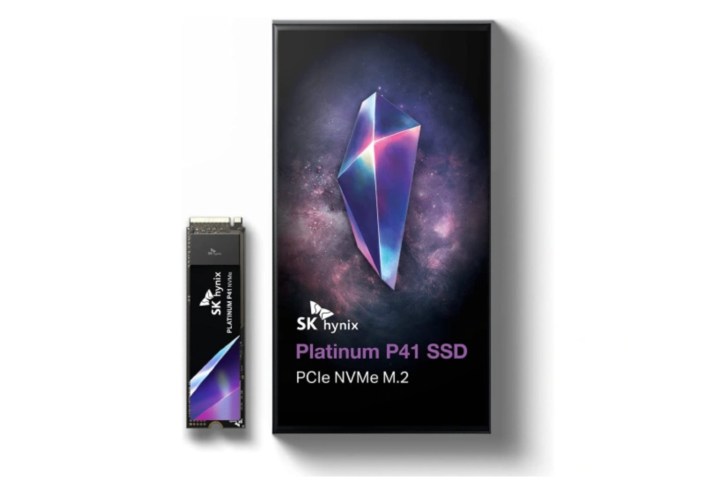SK Hynix has just announced the release of a brand-new PCIe Gen 4.0 SSD that should prove to be one of the best SSDs in terms of input/output operations per second (IOPS).
Set to potentially become one of the fastest such drives on the market, the SSD is already available on Amazon. However, as is the case with many other SSDs, not every variant of the SK Hynix Platinum 41 will offer such top speeds.

The new SK Hynix Platinum 41, at its most capable, comes with sequential speeds of up to 7000MB as well as capacities reaching as high as 2TB. It truly shines where IOPS are concerned, though, seeing as it’s rated for 1.4 million random read IOPS and 1.3 million random write IOPS. Although those numbers don’t make it the fastest SSD in 2022, it certainly has a chance to climb the ranks and land near the top among brands such as Kingston and Western Digital.
SK Hynix also breaks new ground with this SSD due to the 176-layer NAND flash — it’s the first consumer-based drive to utilize this kind of technology, and it delivers a huge upgrade, stepping up from 128-layer NAND. This adds up to a 20% increase in read cell speed as well as 1.6GT/s of bandwidth between the NAND flash and the SSD controller.
This kind of performance jump could definitely be felt by the end users in daily performance. Be it in gaming or various other workloads, the benefit from an increase in random read and write speeds could be significant. The data on an SSD’s NAND flash is rarely ever neatly organized, which means that the drive has to not just transfer data, but also locate it first. Upping the random read and write speeds should combat this problem to an extent, resulting in faster performance.
As mentioned above, the SK Hynix Platinum 41 is already available on Amazon in three capacities: 500GB for $105, 1TB for $150, and 2TB for $260. All of the models are rated for maximum read speeds of 7000Mbps, which is the maximum PCIe Gen 4 can provide, but the write speeds vary by capacity — the better the model, the higher the write speeds.
SK Hynix has not released the exact random read and write speeds for each individual model, but it seems safe to assume that the same logic will apply here, with the higher-priced versions receiving the best speeds.
The cheapest, 500GB model has a write speed of just 4,700Mbps. Both the 1TB and the 2TB variants can hit at high as 6,500Mbps. The lifespan of the SSD is also reduced or enhanced based on capacity, with the 500GB version rated at 500TBW, the 1TB version at 750TBW, and last, 1,200TBW for the 2TB model.
This SK Hynix Platinum 41 SSD was first spotted by Tom’s Hardware. Until it is thoroughly benchmarked, it’s hard to know how high it will rank among the best SSDs, but on paper, it sounds like it will be one of the better options available on the DIY market.
Editors' Recommendations
- Western Digital responds to claims that SanDisk SSD failures have design flaw
- WD’s new SSD is the Steam Deck upgrade you’ve been waiting for
- The Samsung 990 Pro SSD is built for PS5 and DirectStorage
- CalDigit’s 18-port dock might be the ultimate Mac accessory
- Amazon’s Cyber Monday sale cuts prices on Western Digital hard drives




